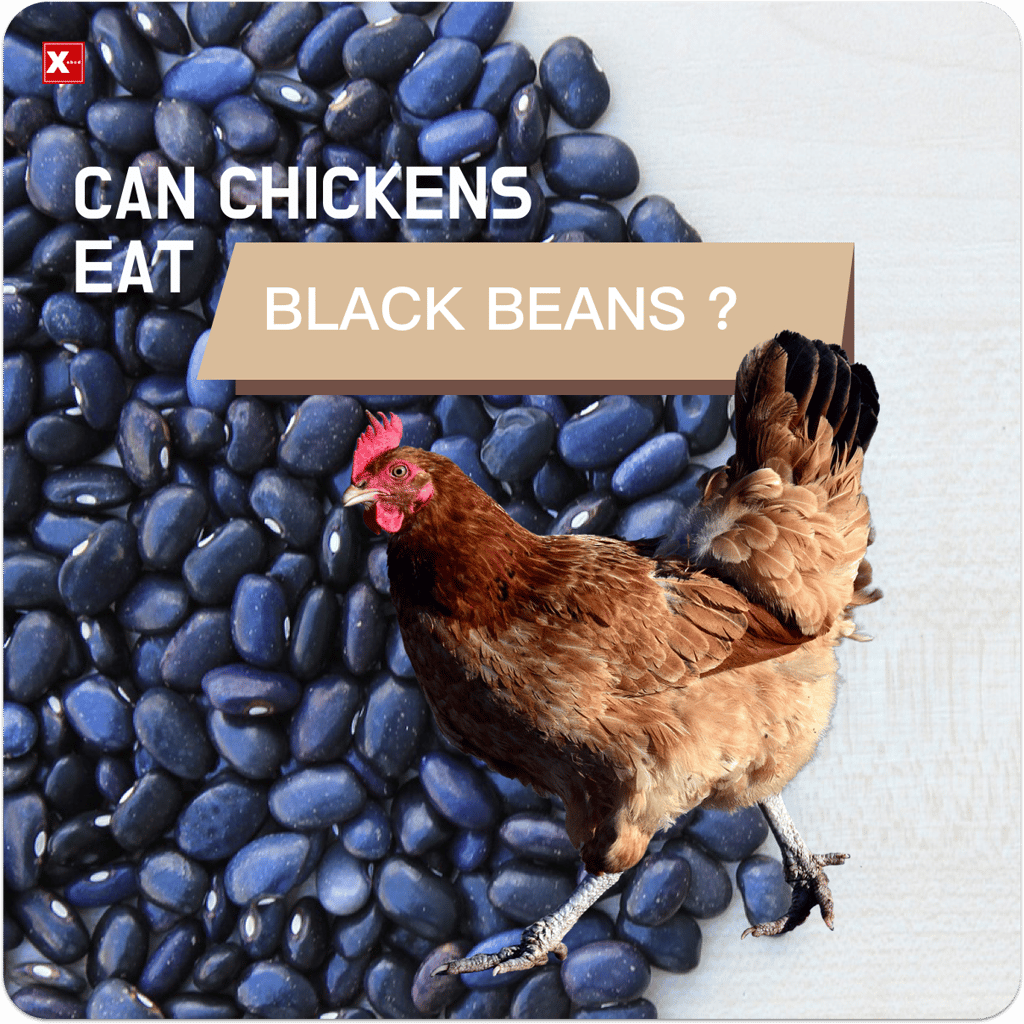Yes, chickens can eat black beans! If you're wondering whether it's safe to include this tasty legume in their diet, you've come to the right place. In this article, we will provide answers to your questions about feeding black beans to chickens. We'll explore the potential benefits and risks, as well as how to safely incorporate black beans into their feed. So, let's find out if your chickens can enjoy this nutritious treat!
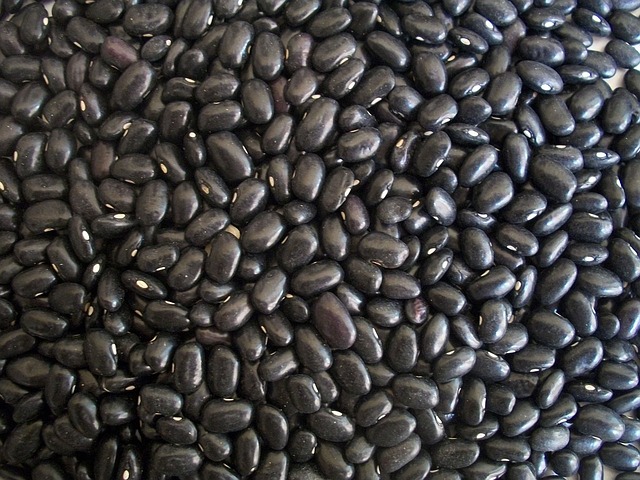
Introduction
One common question that chicken owners often have is whether their feathery friends can enjoy black beans as part of their diet. Chickens are known for their diverse and sometimes peculiar eating habits, so it's essential to understand what foods are safe and beneficial for them to consume. In this article, we will explore the topic of whether chickens can eat black beans, looking at both the potential benefits and risks associated with including this legume in their diet.
Black beans are a nutritious type of legume that is packed with essential nutrients, such as protein, fiber, and various vitamins and minerals. They are a popular ingredient in many human dishes and are often considered a healthy addition to a balanced diet. However, when it comes to feeding black beans to chickens, some considerations need to be taken into account.
| Can Chickens Eat Black Beans? | |
|---|---|
| ✔️ | Chickens can eat black beans in moderation. |
| ❌ | Raw or undercooked black beans should never be fed to chickens. |
It is important to note that black beans should only be provided to chickens in cooked and properly prepared form. Raw or undercooked black beans can pose various health risks to chickens due to their high levels of lectins and enzyme inhibitors, which can interfere with digestion.
Feeding chickens a varied diet can offer certain benefits, and black beans can be included as a small part of their overall feed. However, it is crucial to follow some guidelines to ensure the safety and well-being of your chickens.
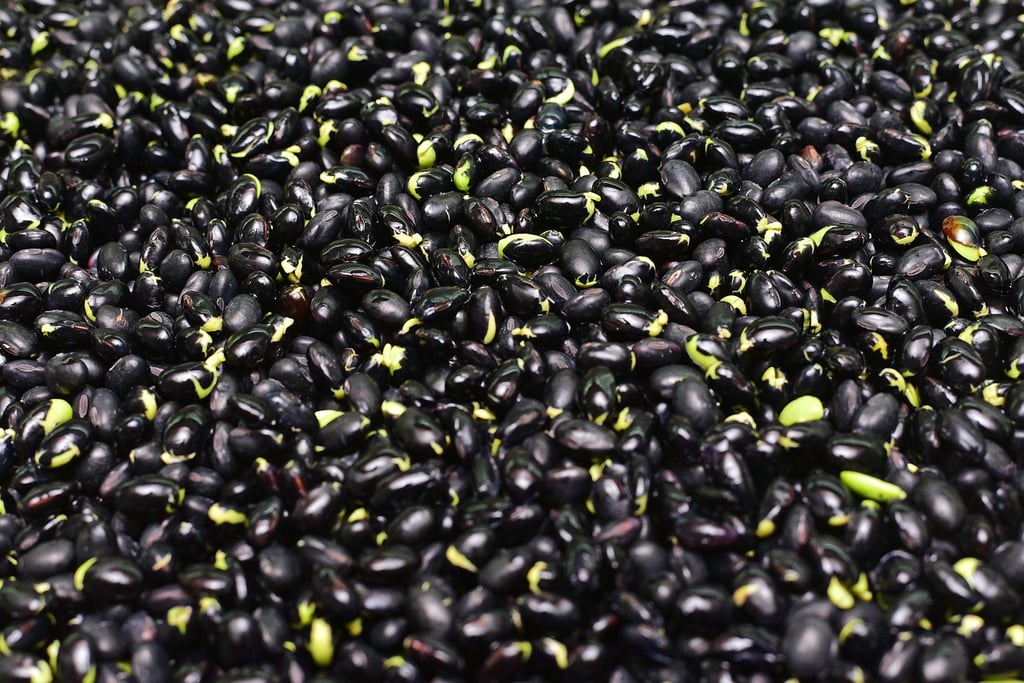
Are Black Beans Safe for Chickens?
When it comes to the dietary preferences of chickens, it's important for backyard farmers to be aware of what their feathered friends can and cannot eat. Among the various types of food, black beans may spark curiosity, as they are a nutritious and versatile legume commonly used in human diets. However, before offering black beans to your flock, it's crucial to determine whether they are safe for chickens to consume.
Chickens have omnivorous tendencies and can eat a wide range of foods, including grains, fruits, vegetables, and even certain insects. However, their digestive systems are designed differently from ours, and certain foods that are harmless to humans may pose risks to chickens. Therefore, it's essential to assess the safety of black beans for chickens based on their nutritional composition and potential risks.
| Nutritional Composition of Black Beans | Potential Risks of Feeding Black Beans to Chickens |
|---|---|
| High in protein | Antinutrients, such as phytic acid and lectins, can interfere with nutrient absorption |
| Rich in fiber | Increase in gas production, leading to digestive discomfort |
| Contain essential micronutrients like iron and folate | May cause allergic reactions in some chickens |
Based on the nutritional composition and potential risks associated with black beans, it can be concluded that feeding them to chickens should be done with caution. While black beans can provide certain benefits, their antinutrients and high fiber content can pose digestive challenges for chickens.
It's important to note that every chicken is unique, and individual tolerances to certain foods may vary. Some chickens may tolerate black beans well, while others may experience digestive issues or allergic reactions. Therefore, it's advisable to introduce new foods gradually and observe any adverse reactions in your flock.
If you decide to offer black beans to your chickens, moderation is key. Instead of making black beans a staple part of their diet, consider offering them as occasional treats or mixing them with other chicken-safe foods. This way, you can minimize the potential risks while still allowing your chickens to enjoy the nutritional benefits that black beans have to offer.
In summary, while black beans can be a nutritious addition to the human diet, their safety for chickens is not straightforward. It's important for backyard farmers to be cautious when introducing new foods to their flock. Always prioritize the health and well-being of your chickens by offering a balanced and appropriate diet that meets their unique nutritional requirements.
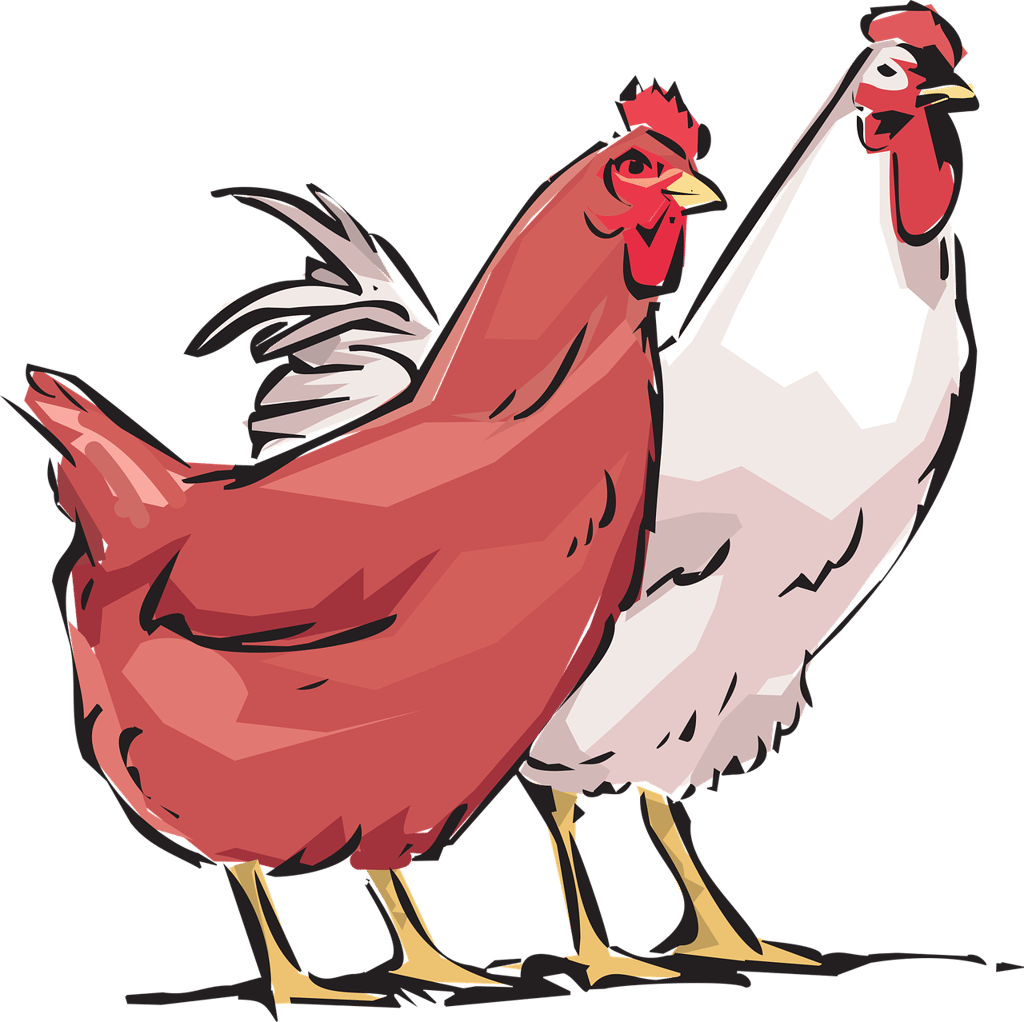
Potential Benefits of Feeding Chickens Black Beans
Feeding black beans to chickens can have several potential benefits for their overall health and well-being. While it's important to remember that black beans should only be given to chickens in moderation and as part of a balanced diet, incorporating this legume into their food can provide some advantages. Let's take a closer look at the potential benefits of feeding chickens black beans:
| Potential Benefits of Feeding Chickens Black Beans | |
|---|---|
| 1. Nutritional Value: | Black beans are packed with essential nutrients like protein, fiber, iron, folate, and antioxidants. Including them in a chicken's diet can help provide them with a diverse range of nutrients necessary for growth, egg production, and overall vitality. |
| 2. Improved Digestion: | The high fiber content in black beans can promote better digestion in chickens. It aids in maintaining a healthy gut by supporting the growth of beneficial gut bacteria and preventing digestive issues such as constipation. |
| 3. Enhanced Immunity: | Black beans contain antioxidants that can help boost the immune system of chickens. A strong immune system is essential for warding off diseases and infections, keeping the flock healthy and productive. |
| 4. Feather Health: | The protein content in black beans contributes to feather health and quality. Feathers are primarily composed of protein, and adding black beans to a chicken's diet can support healthy feather growth and maintenance. |
| 5. Energy Source: | Black beans are a good source of energy for chickens. The carbohydrates present in black beans provide chickens with the energy they need for daily activities, such as foraging, roosting, and even egg-laying. |
While these potential benefits can make black beans a valuable addition to a chicken's diet, it's important to remember that they should be given as a treat and not as a primary food source. Ensuring a balanced diet for your chickens by combining black beans with other suitable foods will help maintain their overall health and prevent any potential negative effects from excessive consumption.

Possible Risks of Feeding Chickens Black Beans
While black beans can be a nutritious addition to a chicken's diet, it's important to be aware of some potential risks associated with feeding them this legume. Here are a few factors to consider:
| Risk | Description |
|---|---|
| Inadequate Digestion | Chickens have a limited ability to digest complex carbohydrates, such as those found in black beans. This can lead to digestive issues, including bloating, gas, and loose stools. |
| Protein Imbalance | Black beans are relatively high in protein compared to a chicken's typical diet. Overfeeding black beans to chickens can disrupt the balance of nutrients in their diet, leading to potential health problems, such as kidney stress or gout. |
| Nutrient Absorption Interference | Black beans contain a natural compound called phytic acid, which can hinder the absorption of certain nutrients like iron, calcium, and zinc. Feeding excessive amounts of black beans may result in nutrient deficiencies over time. |
| Potential Toxicity | In rare cases, black beans that have been contaminated with mold or toxins can pose a risk to chickens. Moldy black beans can cause digestive upset and other health issues if consumed. |
| Allergies or Sensitivities | Just like humans, chickens can develop allergies or sensitivities to certain foods. It's possible that some chickens may have an adverse reaction to black beans, leading to allergic symptoms or digestive disturbances. |
It's important to note that not all chickens will experience these risks, and some may tolerate black beans well in moderation. However, it's always wise to introduce new foods gradually and observe your chickens' reactions to ensure their overall health and well-being. If you notice any adverse effects or concerns, it's best to consult with a veterinarian who specializes in poultry care.
In conclusion, while black beans can offer certain nutritional benefits to chickens, there are potential risks involved in feeding them this legume. As with any new food, it's crucial to consider moderation, observe for any negative reactions, and prioritize a balanced diet to keep your chickens healthy and happy.
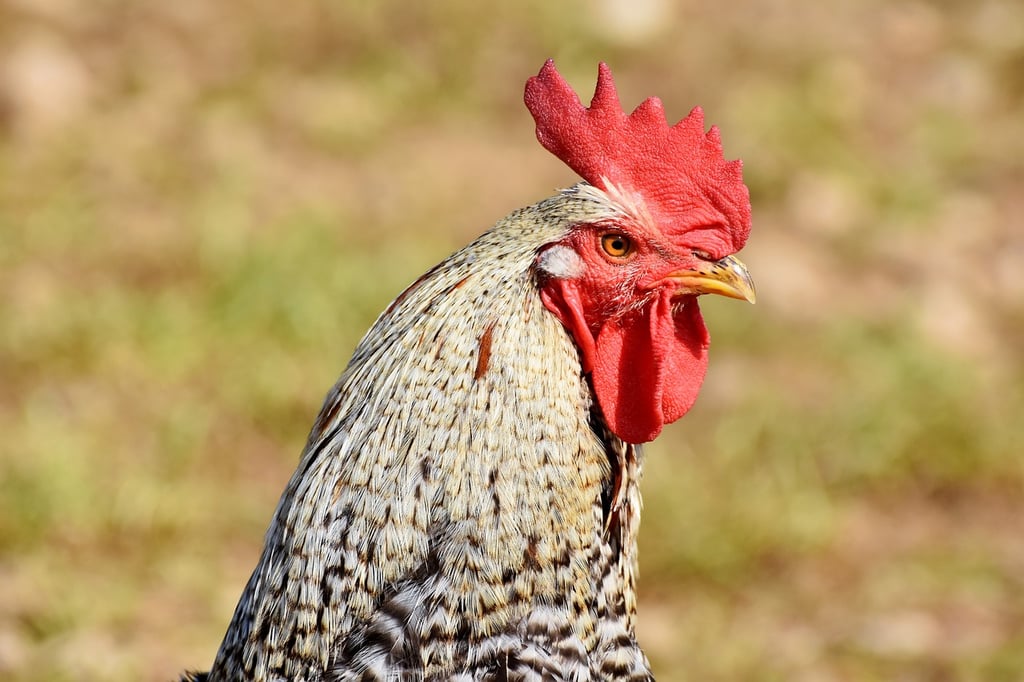
How to Safely Feed Black Beans to Chickens
Feeding black beans to chickens can be a healthy and nutritious addition to their diet. However, it is essential to follow some guidelines to ensure their safety and well-being. Here are some steps to safely incorporate black beans into their diet:
Step 1: Cook the black beans thoroughly
Before feeding black beans to your chickens, it is important to cook them thoroughly. Raw or undercooked beans can contain toxins that are harmful to chickens. Soaking the beans overnight and then boiling them until they are soft and easily mashable will help remove any potential toxins.
Step 2: Mash or chop the cooked beans
Chickens have smaller beaks and digestive systems than humans, so it is recommended to mash or chop the cooked black beans before feeding them. This will make it easier for chickens to eat and digest the beans, ensuring they receive the maximum nutritional benefits.
Step 3: Introduce black beans gradually
When introducing black beans to your chickens' diet for the first time, it is best to start with small quantities. This allows their digestive system to adjust gradually, minimizing the risk of digestive upset. You can gradually increase the amount over time as they become accustomed to the beans.
Step 4: Offer black beans as a treat, not a staple
While black beans provide a good source of protein, vitamins, and minerals, they should not replace the main feed of your chickens. Black beans should be offered as an occasional treat or supplement to their regular balanced diet. It is important to maintain a well-rounded diet for your chickens to ensure optimal health.
Step 5: Monitor your chickens' response
After introducing black beans to your chickens, observe their response and overall health. Monitor any changes in their droppings, behavior, or appetite. If you notice any adverse reactions or digestive issues, consider reducing or eliminating black beans from their diet.
Step 6: Consult with a poultry expert
If you have any concerns or questions about feeding black beans to your chickens, it is always recommended to consult with a poultry expert or veterinarian. They can provide guidance specific to your chickens' needs and help ensure their nutritional requirements are met.
By following these steps and ensuring the safe introduction of black beans into your chickens' diet, you can provide them with a nutritious and varied diet while keeping them healthy and happy.

Conclusion
After exploring the safety, potential benefits, and risks of feeding black beans to chickens, it is clear that moderation and caution are key. While black beans can be a nutritious addition to a chicken's diet, they should not replace their regular feed.
Conclusion:
- Chickens can safely eat black beans in small quantities and as part of a balanced diet.
- Black beans provide essential nutrients like protein, fiber, and vitamins.
- However, overfeeding black beans can lead to digestive issues and an imbalanced diet.
Therefore, it is important to remember the following key points:
- Feeding in moderation: Offer black beans as a treat or supplement, not as a main source of food.
- Preparation is crucial: Soak and cook the black beans thoroughly to ensure easy digestion and minimize anti-nutrients.
- Watch for any adverse reactions: Monitor your chickens closely after introducing black beans to their diet and consult a veterinarian if you notice any negative changes in their health.
By following these guidelines, you can safely incorporate black beans into your chickens' diet and provide them with additional variety and nutrition. Remember, always prioritize their regular feed and consult a poultry expert or veterinarian if you have any concerns or questions.
Faqs
-
Can chickens eat black beans raw?
It is not recommended to feed chickens raw black beans. Raw beans contain a compound called phytohaemagglutinin, which can be toxic to chickens and cause digestive issues. It's important to cook the black beans thoroughly before offering them to your chickens.
-
How much black beans can I feed my chickens?
The amount of black beans you can feed your chickens will depend on their overall diet and size. As a general guideline, black beans should only make up a small portion of their diet, not exceeding 5-10% of their daily intake. It is important to offer a balanced diet that includes a variety of nutrients from different sources.
-
Are there any alternatives to feeding chickens black beans?
Absolutely! If you are looking for alternative protein sources for your chickens, you can consider feeding them other legumes such as lentils or chickpeas. Additionally, you can provide them with high-quality commercial chicken feed that is specifically formulated to meet their nutritional needs. Always consult with a poultry nutritionist or veterinarian for expert advice on the best diet for your chickens.

